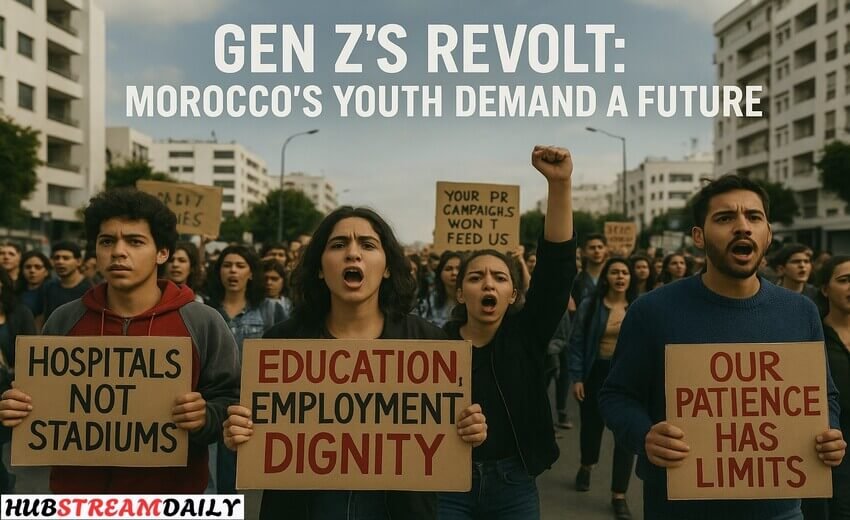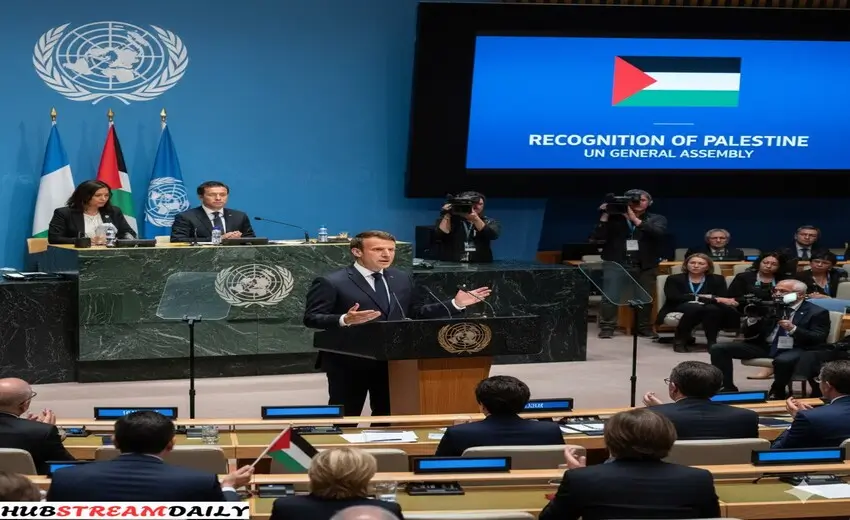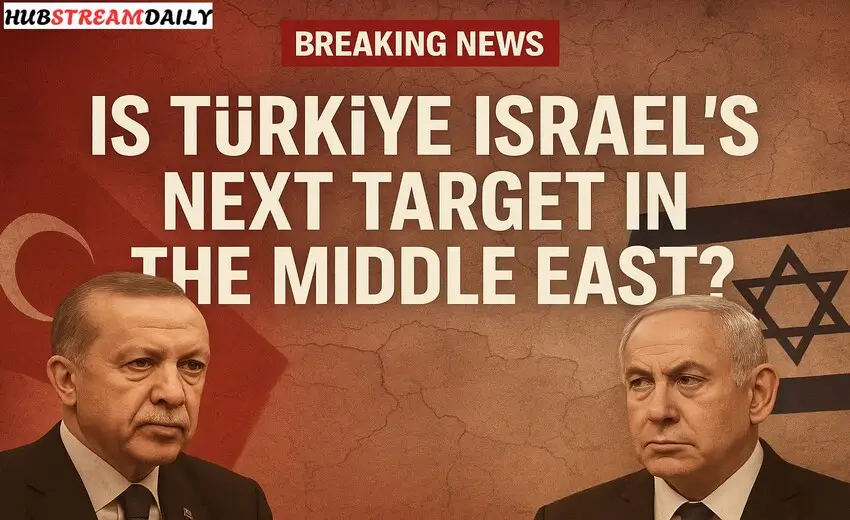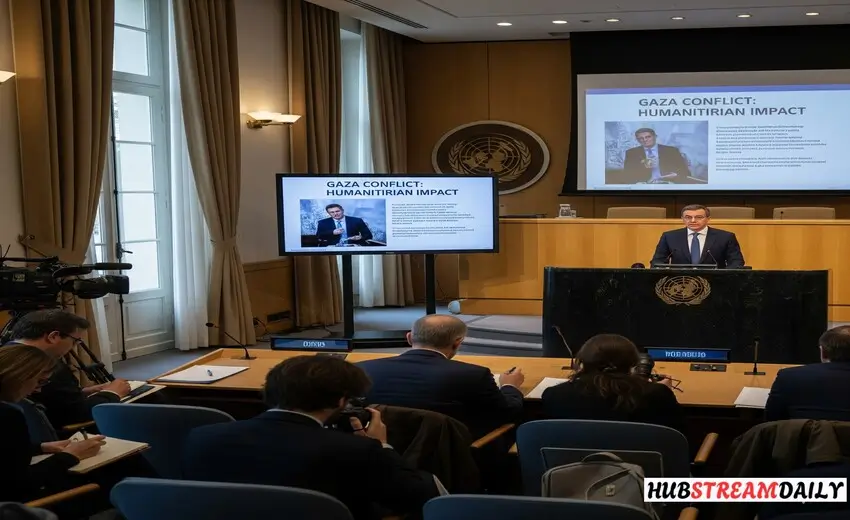
Former U.S. President Donald Trump has recently made headlines internationally once again—not because of a campaign rally or social media post, but because of a claim he made about a possible oil deal with Pakistan. Trump’s comments were made at a business forum in Washington, D.C. when he claimed his administration was striking an energy deal with Pakistan that would have changed the country’s oil supply and improved U.S.-Pakistan economic ties. The statement was covered in the news, but many analysts and industry insiders are unsure whether this supposed deal is either realistic or just another one of Trump’s political puffery.
An Incredibly Bold Statement from Trump
Trump did make an incredibly bold statement during the forum when he said, “We were very close to signing a tremendous oil deal with Pakistan that would have made both countries stronger and richer. Pakistan was ready to go, but sometimes, politics just gets in the way.” The former president’s statement meant that both countries would have benefited mutually, at least in Trump’s mind. U.S. oil companies would have entered into valuable new markets, and Pakistan would have received its energy at much better prices.
For supporters, part of the appeal of the statement is it gives indication of Trump’s continuing abilities in the international business negotiation game, even after being out of office for several years. For critics, the statement was dubious due to a complete lack of public evidence or formal documentation to support the statement.
The Context: U.S.-Pakistan Relations
To assess the plausibility of Trump’s oil deal claim, we must look at the larger context of U.S.-Pakistan relations. Historically, Pakistan and the U.S. have had a complex relationship shaped by geopolitical concerns, security cooperation, and trade agreements. Energy has always been a sensitive issue; Pakistan has faced energy shortages and has sought alliances on oil and gas supply, as it has a growing demand of its own.
During Trump’s presidency, U.S.-Pakistan relations were marked by cooperation and tension. The United States did provide military aid to Pakistan during his presidency and did engage in some diplomatic dialogue, but Trump frequently publicly criticized Pakistan, for not doing enough in the fight against terrorism, and made noise about cutting aid. Thus, under a mixed relationship like that, an oil deal (if done) would likely require diplomacy in terms of what each country had to agree to as what they want to achieve from the deal.
Analysts Respond
Energy analysts are divided on the believability of Trump’s assertion. Some point out that a formal oil deal would have involved months of negotiations, regulatory review and policymaking, and market studies, all of which, to date, have left no documentation in the public record. “While the notion of a U.S.-Pakistan oil deal is not impossible, it’s highly improbable that such an agreement was made without any public reporting,” said Dr. Farhan Ahmed, an energy policies analyst in Islamabad. “Oil supply contracts include layers of work—logistics management, contract prices, and legal considerations and documentations, and that work usually leaves a paper trail, which we have not seen.”
Yet, some political analysts note that Trump’s comment might be more symbolic than substantive. “Trump tones down an agreement with a foreign government to elevate his image as a global business influencer,” observed Sarah Thompson, a political analyst based in Washington, DC. “Regardless of whether or not the deal was real, it underscores his character as a capable person of establishing large internationally recognized agreements.”
Pakistan’s Perspective
Pakistan has not confirmed any formal oil agreement with the U.S. government. However, officials in Islamabad have made it known there are discussions with some international partners to stabilize the energy sector. Pakistan has a growing population and increasing industrial demand, and therefore is pursuing diversification of its energy sources to lessen its reliance on volatile markets. Theoretically, U.S. crude would certainly fit into that vision, but experts caution that geopolitical and economic factors make any such agreement very complicated.
“Pakistan is seriously looking for reliable energy partners, but any deal with a foreign power – especially the U.S. – would require it be negotiated and priced, with the appropriate regulators involved,” says Adeel Qureshi, a Pakistani energy consultant. “Claims made by parties not part of the negotiations should be taken with caution until there are formal statements.”
The Oil Marketplace
Even if Trump was entirely correct, there are still challenges to pulling off any type of oil arrangement with Pakistan on the global level. Global prices for oil are tied to global supply, geopolitical uncertainties, and demand. Getting U.S. crude oil to Pakistan would involve agreements about transportation, infrastructure, and longer-term contracts–which are not particularly easy to negotiate quickly. Given various domestic energy policies in Pakistan–including subsidies and prohibitions on importing energy, those provisions would likely be very significant for any success of future agreement efforts.
The Political Aspect
Trump’s claim was made during a moment in which he is thinking about running for office again. Some analysts believe he is merely trying to build himself up as an executive in business and a dealmaker who not only had success in business, but who also has foreign policy knowledge and clout. By raising a phony oil deal with Pakistan into the conversation, he weaves in a narrative of economic and foreign policy success.
“This fits into a larger pattern of Trump in the post-Presidency,” said Thompson, “Because he talks a lot about deals, negotiations, international deals, and keeps a certain relativity with his supporters in the eyes of the broader audience. Even if there was no deal and was never meant to be, it keeps him part of the overall narrative,” he added.
Reality or Illusion?
The truth in respect of Trump’s claim is somewhat imprecise. It is conceivable that an initial discussion took place with either or both U.S. and Pakistani entities, but since they made no written agreement and/or there is no evidence of any formal arrangement, it is reasonable to conclude that the entirety of the arrangements if they existed, did not proceed any further than initial discussions. The question for journalists, analysts, society, is whether this claim is a valid diplomatic and economic achievement, or more just a story aimed to enhance Trump.
Regardless of the claim’s truth, it has generated considerable debate about U.S.-Pakistan economic relations, energy security, and the important role of former leaders in molding the perceptions of the public. It reopens questions of transparency, media responsibility, and perhaps the biggest challenge of separating facts from stories on political narratives in today’s news environment.
Conclusion
Trump’s assertion of an oil deal with Pakistan straddles a line where politics, business, and media spectacle all reside together. Whether the deal was a real deal or not remains uncertain. The statement does, however, highlight a continuing interest, globally, in energy-based partnerships; and the complexities of the U.S.-Pakistan relationships and negotiation mechanisms. Whether it was truly a missed negotiation or simply just a political narrative he chose to sell; the emphasis on perception is pivotal in reality.





